






















As the season winds down, we’re celebrating our 2024 wins and giving a big shoutout to our sponsors, partners, and conservation allies, KZN Conservancies, KZN Ezemvelo and Mandeni Municipality - you’ve helped us grow, quite literally! Tugela Mouth Conservancy may be tiny, but small seeds grow mighty trees! In 2025, we’re all about collaboration, learning, and sharing - because wisdom thrives in great company. Huge thanks to Mtunzini and Zinkwazi-Blythedale Conservancies, Ezemvelo KZN Wildlife and WildTrust for being amazing partners!

Next up: tackling invasives! Homeowners, we need your help keeping verges clean and invasives out. Stay tuned for invasive plant training to help protect our ecosystem. Here’s to a 2025 filled with learning, sharing, and action!
Petro Vorster - Chairperson, Tugela Mouth Conservancy
On December 3rd 2024, an unusual sight caught the attention of nature enthusiasts at Tugela Mouth - a graceful flock of Lesser Flamingos soaring overhead. While the group continued their migration, one young flamingo lingered behind, drawing the fascination of the local conservancy members. Affectionately dubbed “Flambie,” this unexpected visitor quickly became a symbol of wonder and conservation awareness
Lesser Flamingos are classified as near-threatened on the SANBI Red List, making sightings particularly significant. With the flock gone, Flambie remained at the Tugela River Mouth, navigating its surroundings under the watchful eyes of the community. Concerned for the juvenile’s safety, conservancy member Marianne Shaw monitored its well-being, ensuring it had the best chance to thrive.
The last sighting of Flambie was recorded on December 13th, marking the end of an unforgettable chapter. However, its presence has left a lasting impact, inspiring renewed enthusiasm for conservation efforts in the area.
























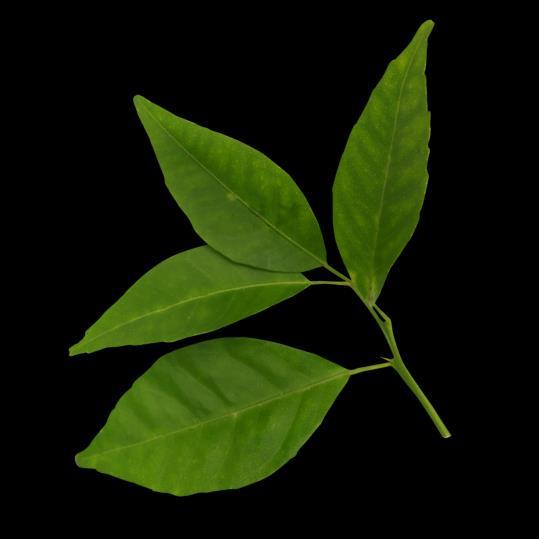





















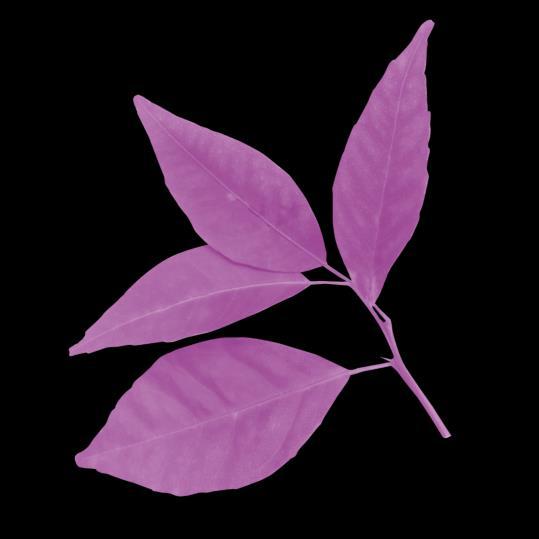





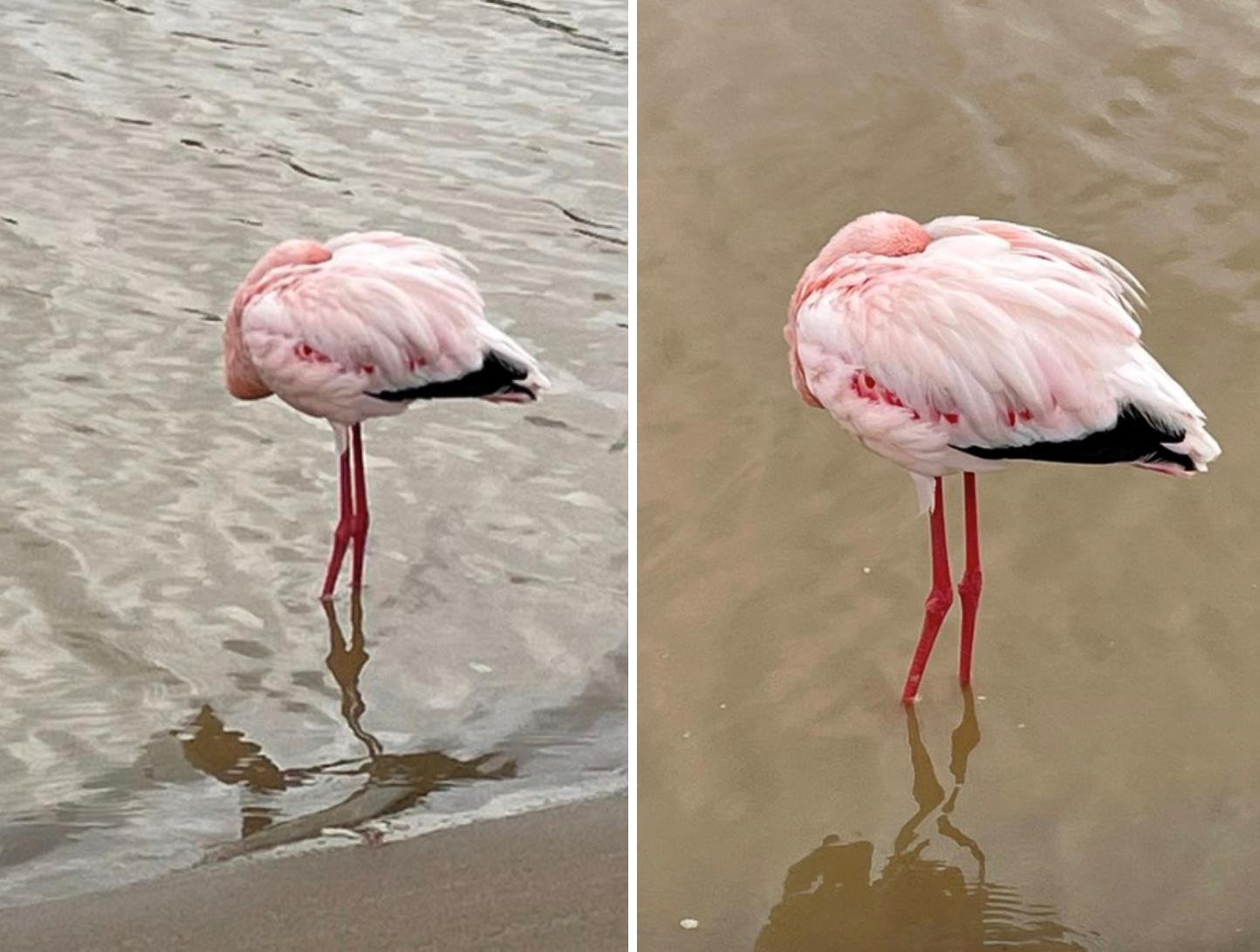

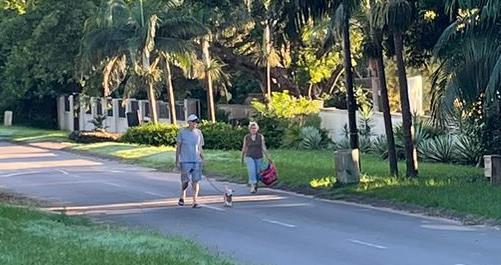





Sue Tuffin

Every morning, as the sun rises over Tugela Mouth, Chris and I lace up our shoes, grab our bags, and head out to do something that’s become routine and a mission -picking up litter. Recently, ECOTimes asked us why we dedicate our mornings to this task, and the answer is simple yet layered with emotion and concern.
The sight of litter is disheartening. Watching it accumulate daily, knowing the harm it causes to our beautiful environment and the wildlife that calls this place home, is simply painful. Ignoring it feels illogical. By removing even a small fraction of the waste, we hope to protect the delicate ecosystems surrounding us. And perhaps, just perhaps, by setting an example, those who carelessly discard their trash might think twice. But we’re not blind to the bigger picture. Our daily efforts, as much as they help locally, feel like a drop in an ocean of waste. Litter and pollution are vast, global issues, symptoms of our ever-developing, ever-consuming world. Humanity’s drive to invent, construct, and expand has led to an overwhelming waste crisis, one that threatens the very environment on which we rely. Yet, despite the enormity of the problem, individuals and organisations are fighting to turn the tide. Their efforts inspire us, and if we have any appreciation for the diverse, wonderful world we inhabit, we all have a role to play, no matter how small. Every piece of litter picked up, every bit of waste reduced, contributes to a larger movement of preservation and respect for our planet. A stroll down to the river mouth reveals the magnitude of the problem. The once-pristine Tugela River (uThukela) now bears the burden of humanity’s negligence, becoming an unintentional dumping ground. Our efforts in the village often feel like we’re merely ‘sweeping the doorstep’ of a house buried in garbage. But we won’t give up. Each morning, we’ll continue to pick up litter, not just for the sake of a cleaner village, but as a statement - a testament to the belief that small actions, when multiplied, can lead to meaningful change.

We invite everyone in the community to join us, to see the beauty we’re trying to protect, and to become part of the solution.
For Steve Pretorius, a homeowner and dedicated member of the Tugela Mouth Conservancy, fishing is more than just a hobby - it's a way of life deeply intertwined with nature, family traditions, and conservation.
A Lifelong Passion Rooted in Family
Steve's love for fishing began at a very young age. "I started fishing when I was just a small boy, still in nappies," he recalls with a chuckle. His father and grandmother were his first teachers, introducing him to freshwater angling, rock-andsurf fishing, and deep-sea adventures. However, after settling on the coast, rock-and-surf fishing became his true passion. He hopes his son, Christo Pretorius, will continue the family's fishing legacy. Steve fondly shares, "Christo's nickname at school was 'Vis' Pretorius because he caught so many fish."
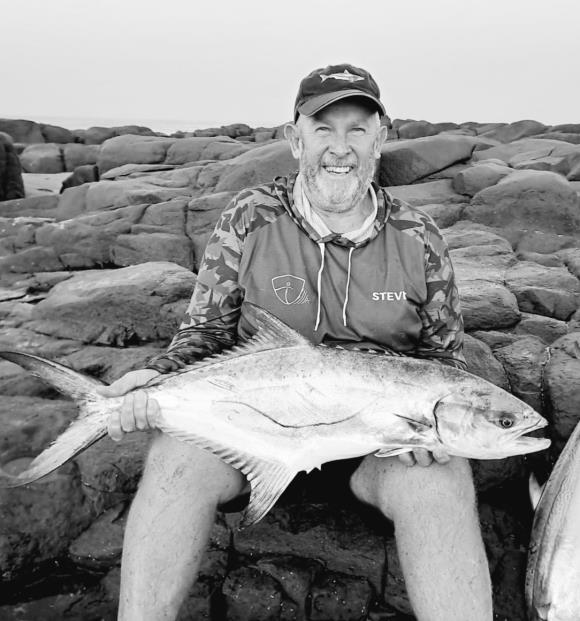











The Joy of Fishing































































































































"It's blessing to stand up every morning and go down to the beach, to see the sunrise over the ocean and be close to nature and my Creator," Steve shares For him, fishing is more than catching fish it's about patience, the thrill of the unexpected, and the serenity that comes from being immersed in the natural world Even when the sea isn't ideal for fishing, Steve finds purpose in cleaning up the beach, ensuring that the beauty he cherishes remains unspoiled.












































A Daily Ritual




































































































































Despite not being retired, Steve makes fishing daily routine "You'll see me on the beach every morning from 00 to 00 m and in the afternoon after work until late at night," he says His dedication is unwavering, often spending 36 to 40 hours week by the ocean He practices artificial lure spinning almost daily and switches to bait fishing over the weekends "The more time you spend fishing, the bigger the rewards at the end of the day," he notes.

















































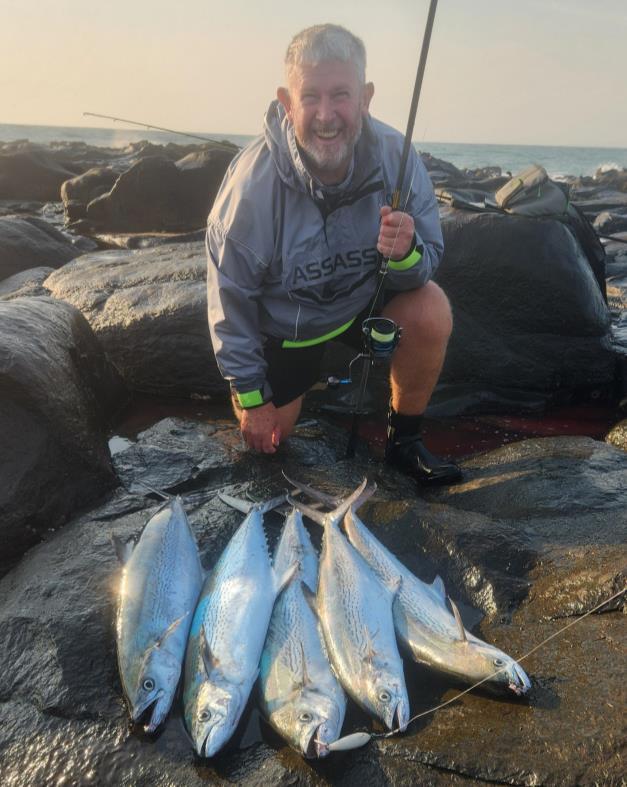
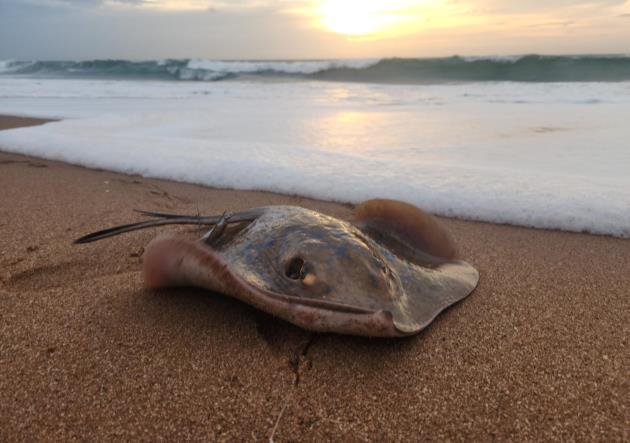
Steve acknowledges that starting any hobby, including fishing, can be expensive, but he emphasises the mental health benefits. "Fishing will teach you to be patient and take the stress of life away," he advises Persistence is key: "Don't give up. Some days you don't even get a bite, but Vasbyt' keeps you going." He also reminds new anglers to respect nature: "Stay within the bag limits; the ocean is overexploited."
The Tugela Mouth area is home to a diverse range of fish species. Edible catches include Shad, Dusky Kob, Snapper Kob, Spotted Grunter, Natal Stumpnose, Rock cod, Blacktail, Stone bream, Bronze bream, Garrick, Pompano, Natal snoek, and the famous Tripletail (Lobotes). Non-edible species like Blue rays, Honeycomb rays, Diamond rays, Giant Guitarfish, and various shark species also populate the waters.

Timing
the best catches, Steve recommends fishing during sunrise and sunset, particularly two hours before and after high tide. "Off the rocks is better low tide," he adds. While most species can be caught year-round, some are seasonal. Kob species, shad, and Garrick are more productive in autumn and winter, while Giant Guitarfish and rays prefer the summer months. Shad has a closed season from 1 October to 30 November, and Lobotes peak in March and April, with Garrick following from June to October

Memorable Catches
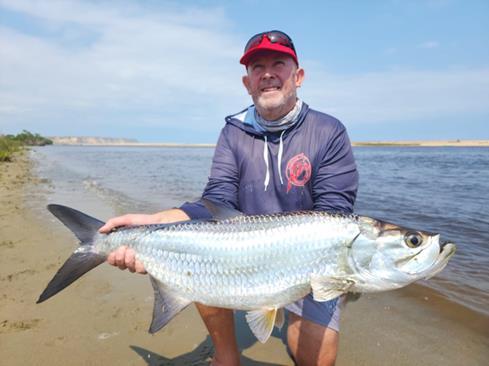
Steve's most cherished catches include Natal Snoek, Garrick, and Giant Trevallies (GTs) while spinning on light tackle. He is also captivated by the raw power of rays and Giant Guitarfish.
However, the most unforgettable catch of his life was a Tarpon in Angola, made even more special because his son, Christo, was by his side. Following Christo’s advice throughout the catch turned this moment into a treasured memory that stands out among a lifetime of fishing adventures.
Steve's deep connection to fishing is matched by his commitment to conservation. As a member of the Tugela Mouth Conservancy, he not only enjoys the bounties of the ocean but also works tirelessly to protect it. His story is a testament to the harmony that can exist between passion and preservation, inspiring both seasoned anglers and newcomers alike to cherish and safeguard our natural world.
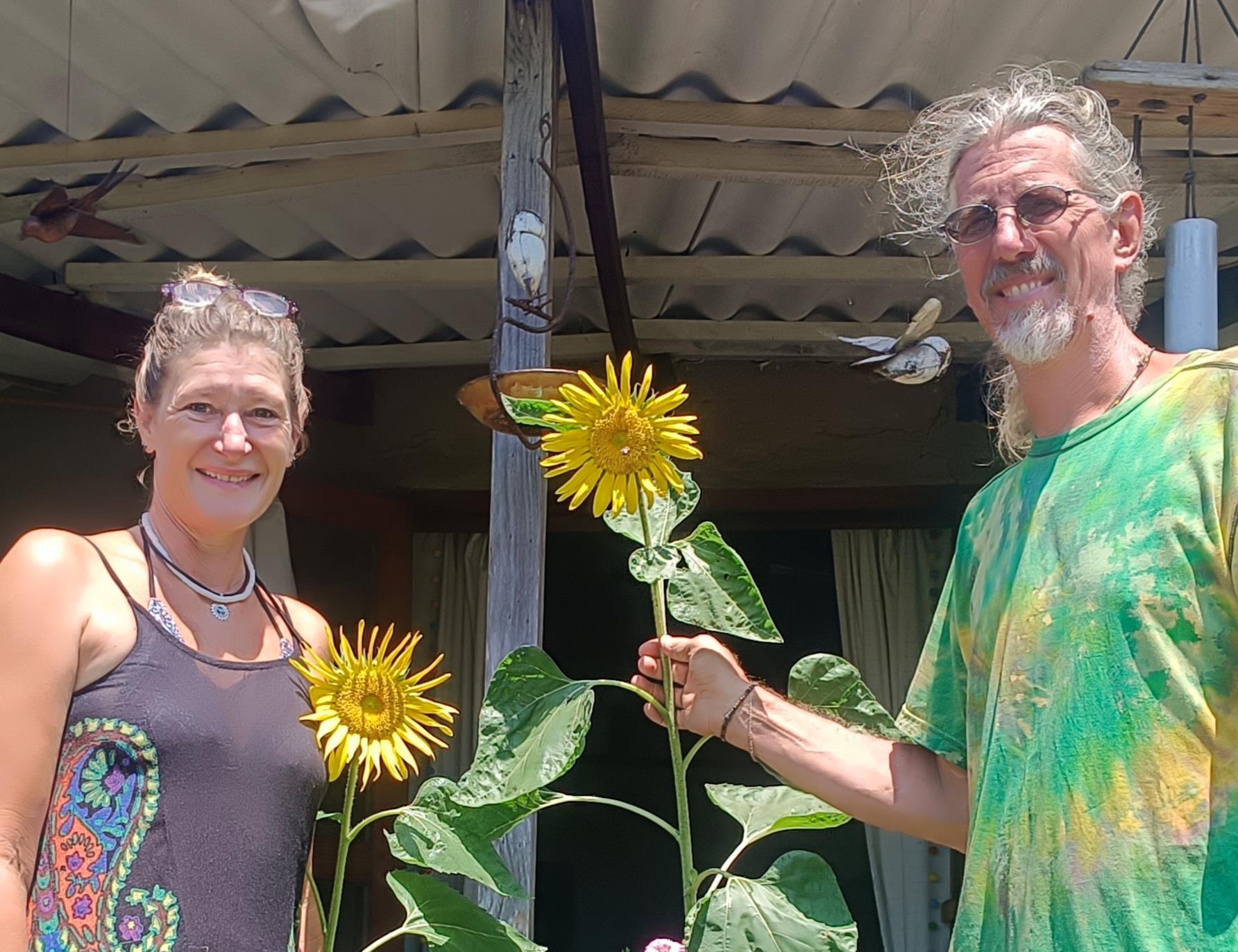
Nestled in the vibrant community of Tugela Mouth, Grant and Carryn Sadie live a life that resonates deeply with sustainability, compassion, and a profound love for all living things. Their home, a haven for plants, animals, and innovative eco-practices, reflects a silver-lined ethos of cohabitation and sustainable living.
The Garden of Life
Their property bursts with biodiversity. Among the treasures are their rare Pepper Bark trees, a species with significant medicinal properties and a spot on the red list of endangered plants. “Pepper Barks are vital for herbal medicine,” Grant explains, offering cuttings to anyone keen to propagate this critical species. Other unique plants include the African horned cucumber, Loufa cucumber, and flourishing pockets of Sage.
The Joy of Chickens
Feathered companions roam freely in the Sadies’ yard, adding colour and life to their homestead The chickens, doted on and well-cared for, produce abundant eggs But as Grant puts it, “We’re not in it for economic reasons. We can only eat so many eggs, so we share the surplus.” Their chickens exemplify their commitment to living in harmony with nature.
Caption: The chicken’s diet is enriched with duckweed grown in these buckets.
Carryn is spearheading an innovative project involving mealworms to degrade non-recyclable polystyrene. Living contentedly in sacks of wheatgerm, these tiny critters are being tested for their potential to “crunch away” at this challenging waste material. Caryn’s work could pave the way for groundbreaking solutions in waste management - an update on her progress is eagerly awaited.
A visit to their composting heap reveals the depth of the Sadies’ commitment to reducing waste. “The basics of composting,” Grant explains, “are layering green and brown materials with a sprinkle of chicken manure to balance carbon monoxide and nitrogen ” A finishing touch of molasses and water enhances fermentation, with lime added for extra minerals. They also use the Bokashi method, which ferments organic matter to enrich the soil, differing from traditional decomposition-based composting. Adding another layer of sustainability, the Sadies breed black soldier flies in their food waste bin. These flies are nature’s recyclers, transforming organic waste into nutrient-rich material for animal feed. “They also control filth flies without spreading disease,” Grant notes, reducing the need for pesticides
The Full Circle of Upcycling
The Sadies are champions of upcycling. Their Perma garden includes a thriving banana circle - a sustainable garden design where compost is added to a central pit surrounded by banana plants. “This full-circle system nourishes the plants and reflects our philosophy of interconnected living,” Grant shares.
Tugela Mouth’s Butterflies and Cultural Potential
Grant dreams of bringing back the butterflies that once graced Tugela Mouth in abundance “Residents can help by planting Tassleberry trees,” he suggests, noting their role in attracting butterflies. For Grant, Tugela Mouth is not just a home but a deeply spiritual place with the potential to become a hub for cultural tourism.
Harvest Moon and Beyond
Known as “Harvest Moon” at local markets, the Sadies share their surplus and passion with the community. Meanwhile, their two dogs, Lucy and Cosmos, add joy and warmth, eagerly greeting visitors with wagging tails.
Wisdom in Action
Grant’s advice for those aspiring to a sustainable lifestyle is simple yet profound: “You need experience, not expertise. If you lack knowledge, ask those who have it.” For the Sadies, Tugela Mouth epitomises this spirit - a place where the exchange of ideas and shared passion for the environment create a thriving community.
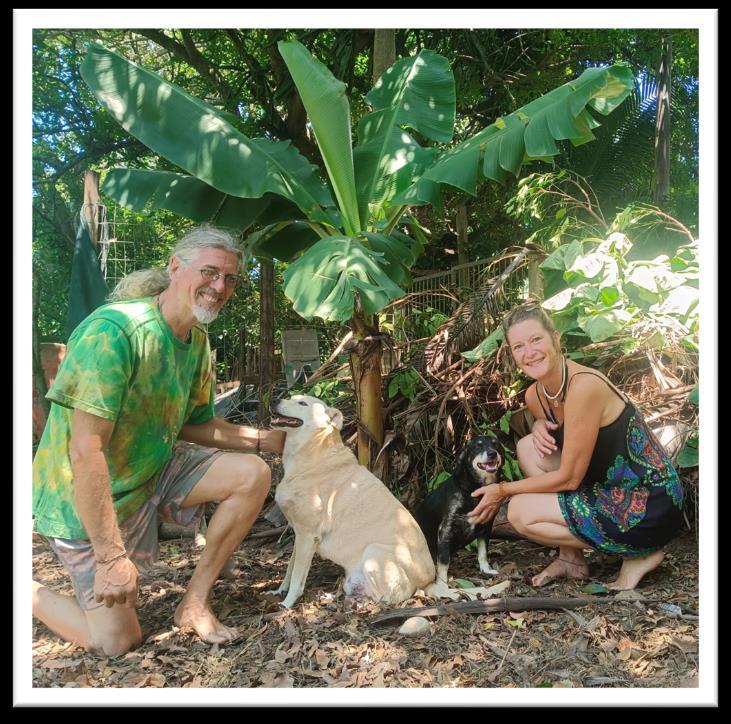
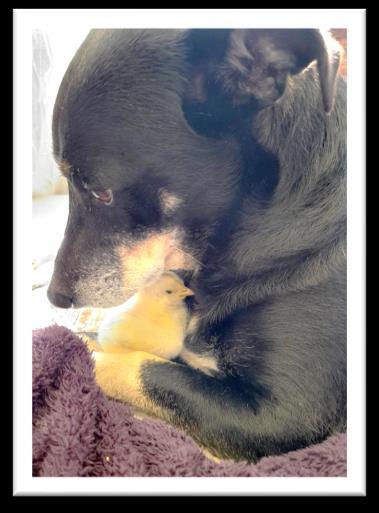
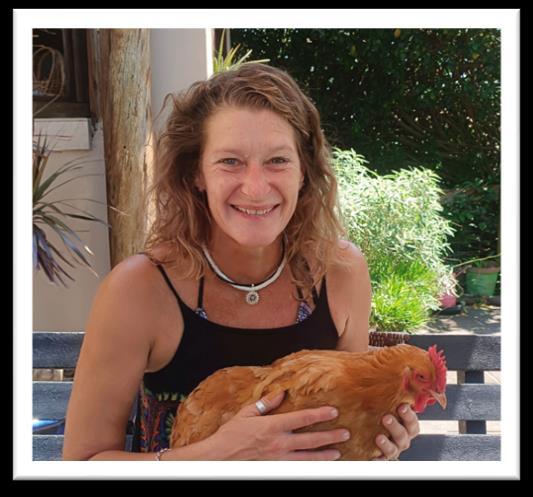
The Sadies’ life is a testament to the power of innovation, sustainability, and a love for the natural world. Their story reminds us that meaningful change begins in our own backyards, one plant, one chicken, and one sustainable idea at a time.
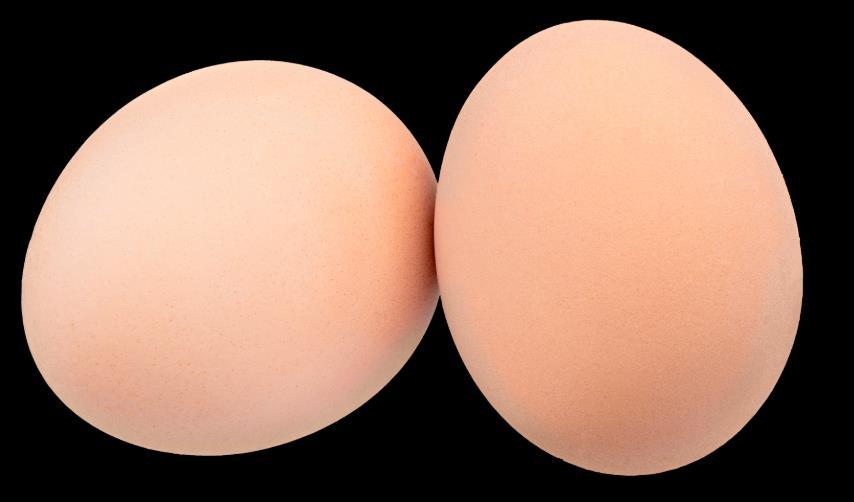
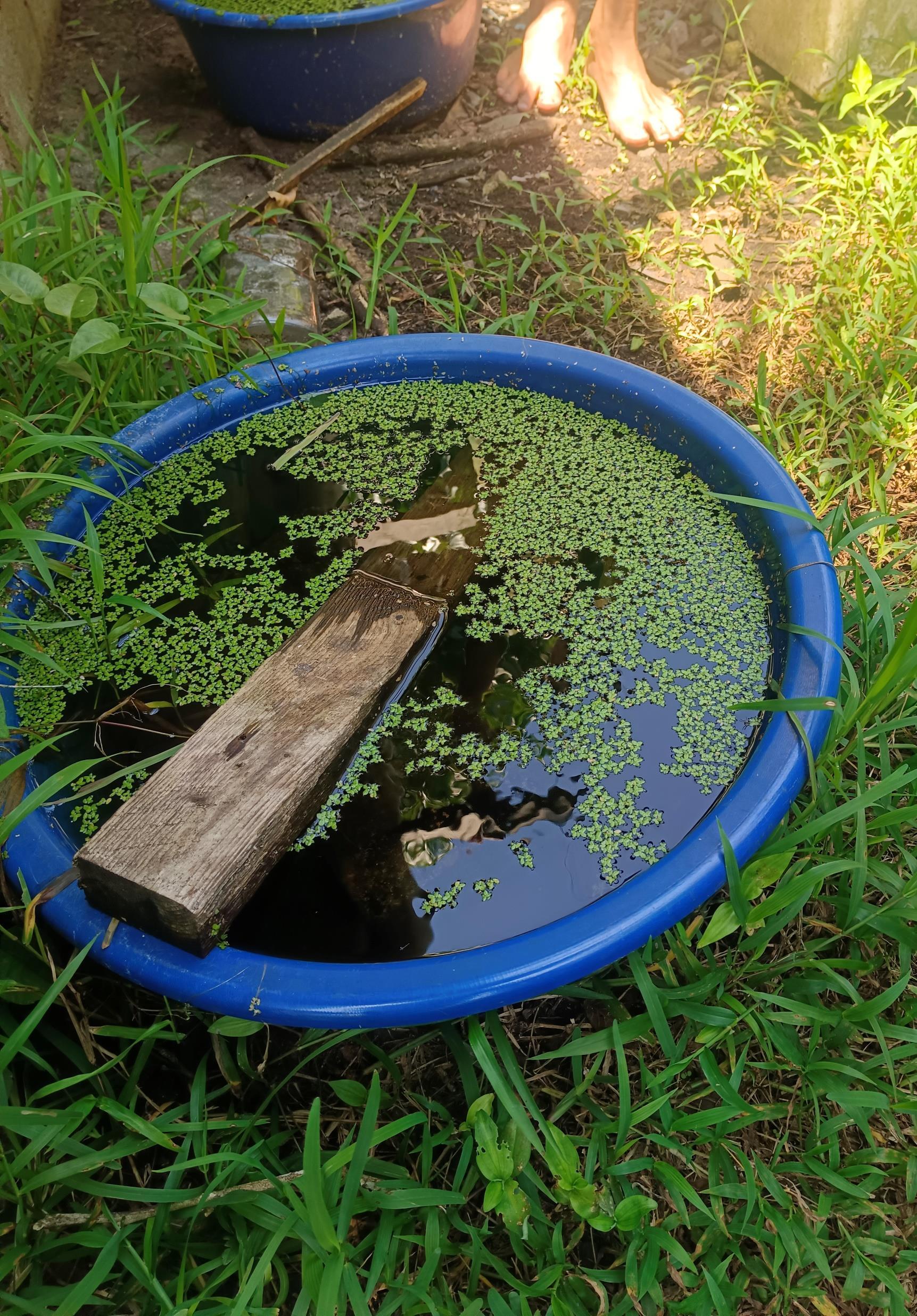
Marianne Shaw is one of the town's Proud Propagators and is nurturing a quiet revolution. Her love for propagation is born from the simple desire to save on the high cost of purchasing plants. "Propagating is exciting," Marianne reflects, "you can grow ten baby plants from one mother plant. " This passion was further fueled when the conservancy approached her to nurture indigenous species for replanting in the village.


Her process for propagating indigenous flora is as meticulous as it is passionate. Marianne often starts with plants gifted by friends or neighbours, ensuring each one is indigenous before she begins. The journey from a single mother plant to a thriving life network involves several careful steps. Most succulents, for instance, require time to callous before being rehomed in soil, while some plant species kindly produce offspring, ready for replanting. Meanwhile, non-succulent varieties find new life with roots sprouting in water before making their way into the earth Marianne hopes to infuse more life into areas that could benefit from a little extra green Through these efforts, both locals and visitors can savour the visual feast offered by the diverse Plant species thriving in the village.

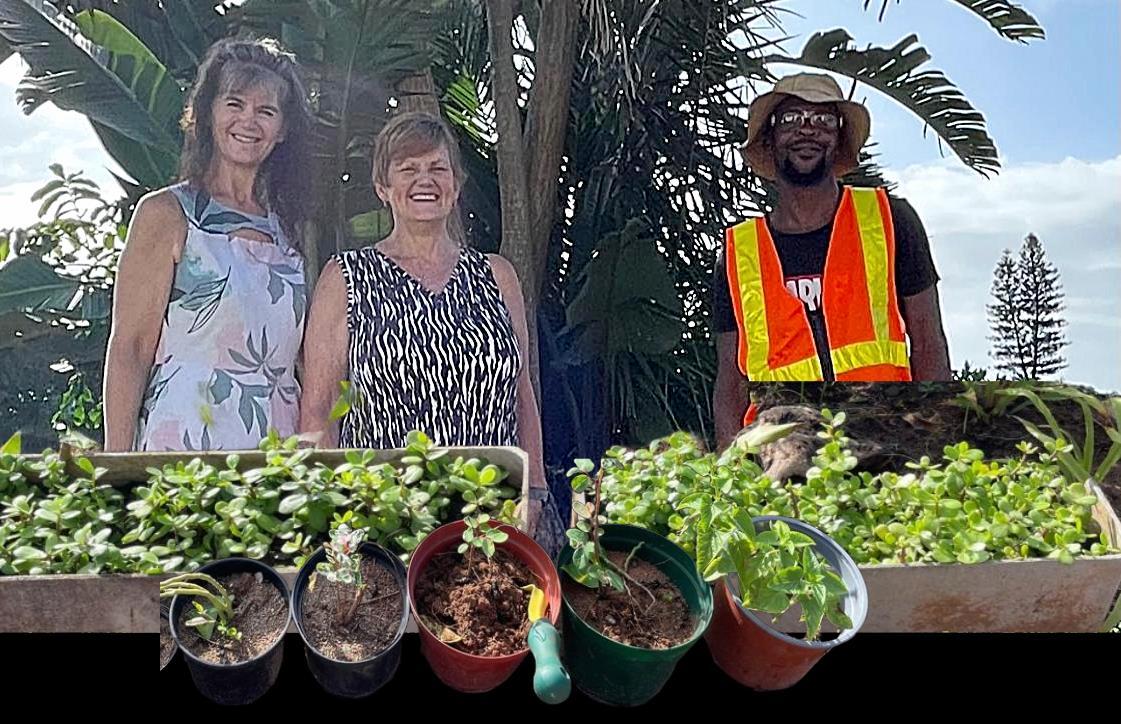
Marianne (centre) is not alone in her endeavours. Her household actively supports the conservancy's green mission. Ngwane (right), the family gardener, plays a crucial role, in ensuring the young plants stay hydrated and thrive. Marianne's daughter, Charmaine (left) also contributes by regularly passing along her cuttings, fostering a familial culture of environmental stewardship.









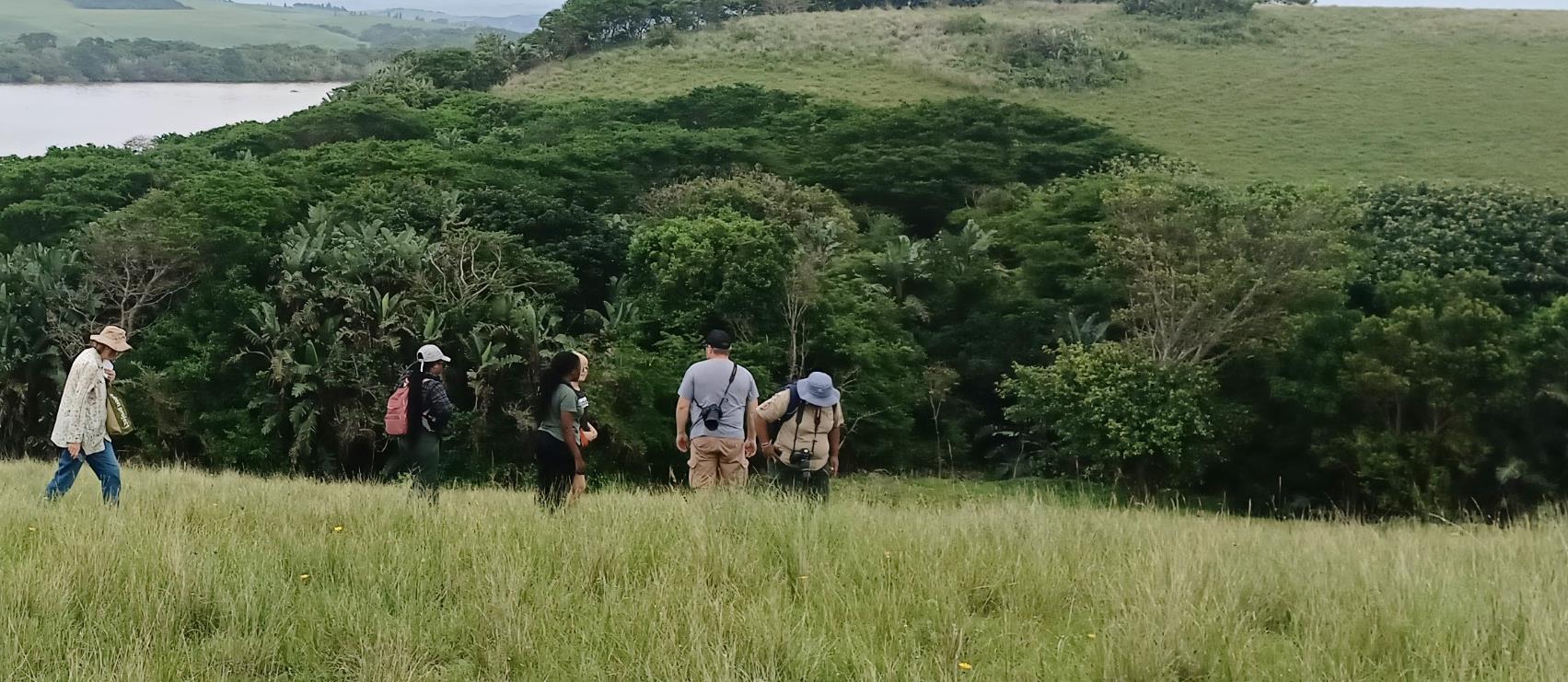
Walking in nature is more than just a leisurely stroll - it’s a powerful way to boost your health and happiness Studies reveal that spending time outdoors reduces stress, improves mood, and enhances creativity. Walking along natural landscapes, like the Tugela Mouth coastline one of the more adventurous shores of the northeastern KZN coast, to where the Indian Ocean meets the mighty Tugela River, releases endorphins and fosters mindfulness, helping us reconnect with ourselves and disconnect from the daily rush.
In Tugela Mouth, the ever-changing beach, often strewn with driftwood and uprooted trees swept into the river, creates a unique and serene environment for exploration A simple walk here offers physical benefits and peace for the mind and soul. So, take a moment, enjoy the natural beauty around you, and let the joy of walking in nature inspire you!
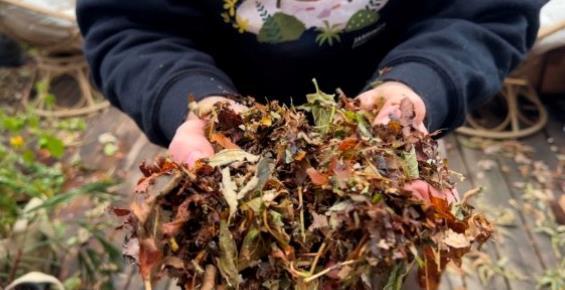
As homeowners in the beautiful Tugela Mouth, we are fortunate to live in a town that boasts lush natural surroundings and proximity to the pristine Marine Protected Area (MPA). However, with this privilege comes the responsibility to protect and preserve our environment for generations to come
Why is Garden Refuse Dumping Harmful?
• Spreading Invasive Species: One of the most pressing concerns is the illegal dumping of garden refuse on municipal grounds (open areas or sidewalks) and, more critically, in the riparian zone of the beach - a fragile and ecologically significant part of our MPA. This practice is not only harmful to our environment but also strictly prohibited as homeowners could be spreading the invasive plants that grow in their gardens.
• Aesthetic Impact: Dumped garden waste diminishes the beauty of Tugela Mouth, detracting from the charm of our town.
A Simple Solution: Composting and Proper Removal
Fortunately, Tugela Mouth has a sustainable solution for disposing of garden refuse responsibly: composting, and minimising leaves with a brush cutter in a dustbin (see steps below). Our local composter, Grant Sadie, is passionate about turning leafy and lawn garden waste into nutrient-rich compost. By partnering with Grant, you can ensure that your garden refuse is repurposed for the benefit of the environment. Contact Grant at 076 452 8867 to make arrangements for delivery of your leafy garden waste. Mandeni Municipality offers a garden waste dump just after the first garage on the way to Mandeni Contact Marie at 079 592 5700 for directions.
Let’s Work Together


As a community, we must all play our part in keeping Tugela Mouth clean, green, and thriving. By avoiding illegal dumping and embracing proper waste disposal practices, we can protect our town’s unique natural heritage and contribute to its long-term sustainability.
1. Place your leaves (only) in a bin and insert a brush cutter.
2. Activate it while mixing the leaves, and you get beautiful, tiny pieces of leaf that decompose quickly.

Conservancy
Definition: A conservancy is a voluntary, community-driven conservation area where landowners or communities collaborate to protect natural resources, wildlife, and ecosystems while allowing certain sustainable uses
Ownership: Typically consists of private land, communal land, or a mix. Landowners retain their property rights but agree to follow conservation practices.
Usage: Often allows sustainable farming, fishing, tourism, and habitation. Activities like eco-tourism might be permitted if they align with conservation goals.
Management: Managed by local communities or partnerships between stakeholders. It relies on collective efforts rather than government enforcement.
Example: The Tugela Mouth Conservancy involves local homeowners and community members and Mandeni Municipality working together to protect their coastal environment. The conservancy is a registered member of KZN Conservancies.


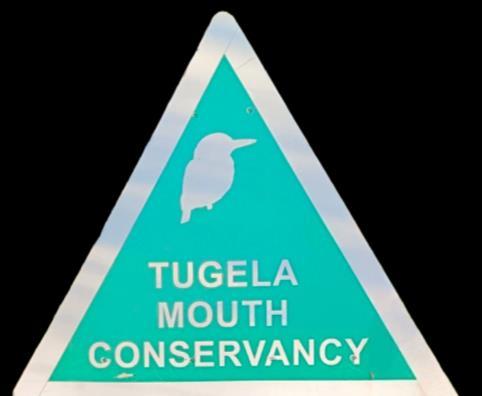
Nature Reserve
Definition: A nature reserve is a formally protected area, designated by the government or a conservation authority, focused primarily on biodiversity and natural habitats.
Ownership: Usually public land owned by the government or managed by conservation organisations. Some private nature reserves exist, but they are subject to strict regulations.
Usage: Activities like logging, farming, or development are typically prohibited. Ecotourism and scientific research may be allowed under strict guidelines.
Management: Managed by government bodies or conservation authorities with legal protections and enforcement in place.
Example: The iSimangaliso Wetland Park in KwaZulu-Natal is a UNESCO World Heritage Site and a nature reserve with strict conservation regulations. Nearby Harold Johnson Nature reserve is managed by KZN Ezemvelo Wildlife.

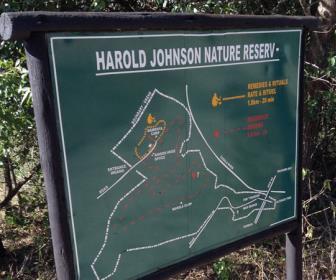

Key Differences:
Both play essential roles in conservation, but conservancies often balance human activities with environmental protection, while nature reserves prioritise strict preservation.
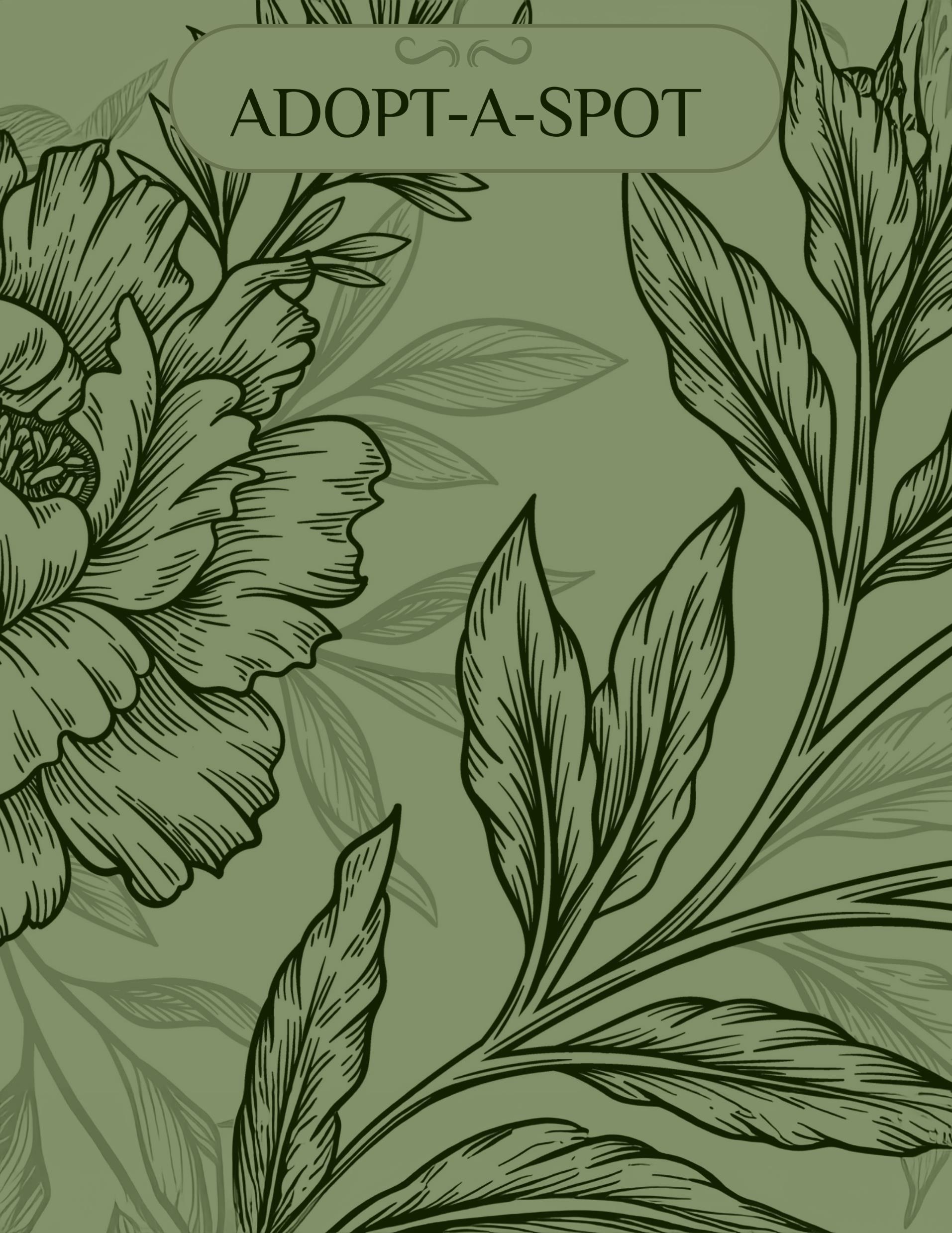
Transform Tugela Mouth!
Have you ever imagined how a few small changes could transform Tugela Mouth into a lush, welcoming, and visually stunning town? The Tugela Mouth Conservancy is calling on community members to get involved in our latest initiative: Adopt-ASpot, a program aimed at enhancing key areas around town with the help of passionate homeowners
What is Adopt-A-Spot?
Adopt-A-Spot is an opportunity for residents to take ownership of specific sites around Tugela Mouth and partner with the conservancy to beautify and maintain them. By “adopting” a site, you’ll play a pivotal role in uplifting the town’s appearance while promoting a greener and more sustainable community.
SPOTS Available for ‘Adoption’
We currently have several areas around town in need of a green makeover:
• The entrance to town: Create a welcoming first impression with vibrant plants and neat landscaping.
• The corner at Lot 51: Transform this spot into a small haven of beauty.
• The corner at Lot 55: Add charm and greenery to this busy corner
• The corner at Lot 11B: A perfect location for an eye-catching makeover
• The roadway between Lots 10 and 11: Turn this roadway into a serene passageway.
• The roadway between Lots 5 and 6: Beautify this pathway with wellmaintained greenery.
Each of these sites offers unique potential to showcase your creativity and commitment to the community.
How It Works
1. Choose Your Spot: Identify a location from the list above that you’d like to adopt.
2. Make a Difference: Bring your vision to life and watch your adopted spot thrive! Regular maintenance and care will ensure its beauty and sustainability.
Why Participate?
• Enhance Tugela Mouth’s Aesthetic Appeal: Well-maintained public spaces reflect pride in our community and improve everyone’s experience of the town.
• Foster a Sense of Community: Work alongside like-minded neighbours who share your passion for conservation and beautification.
How to Get Involved
Ready to Adopt A Spot? Contact the Tugela Mouth Conservancy at conservancy@tugelamouth.org or call 0794957126 to express your interest and choose a site. Together, let’s make Tugela Mouth a greener, cleaner, and more inviting place for all! Let’s join hands to nurture our town’s natural beauty - one spot at a time.











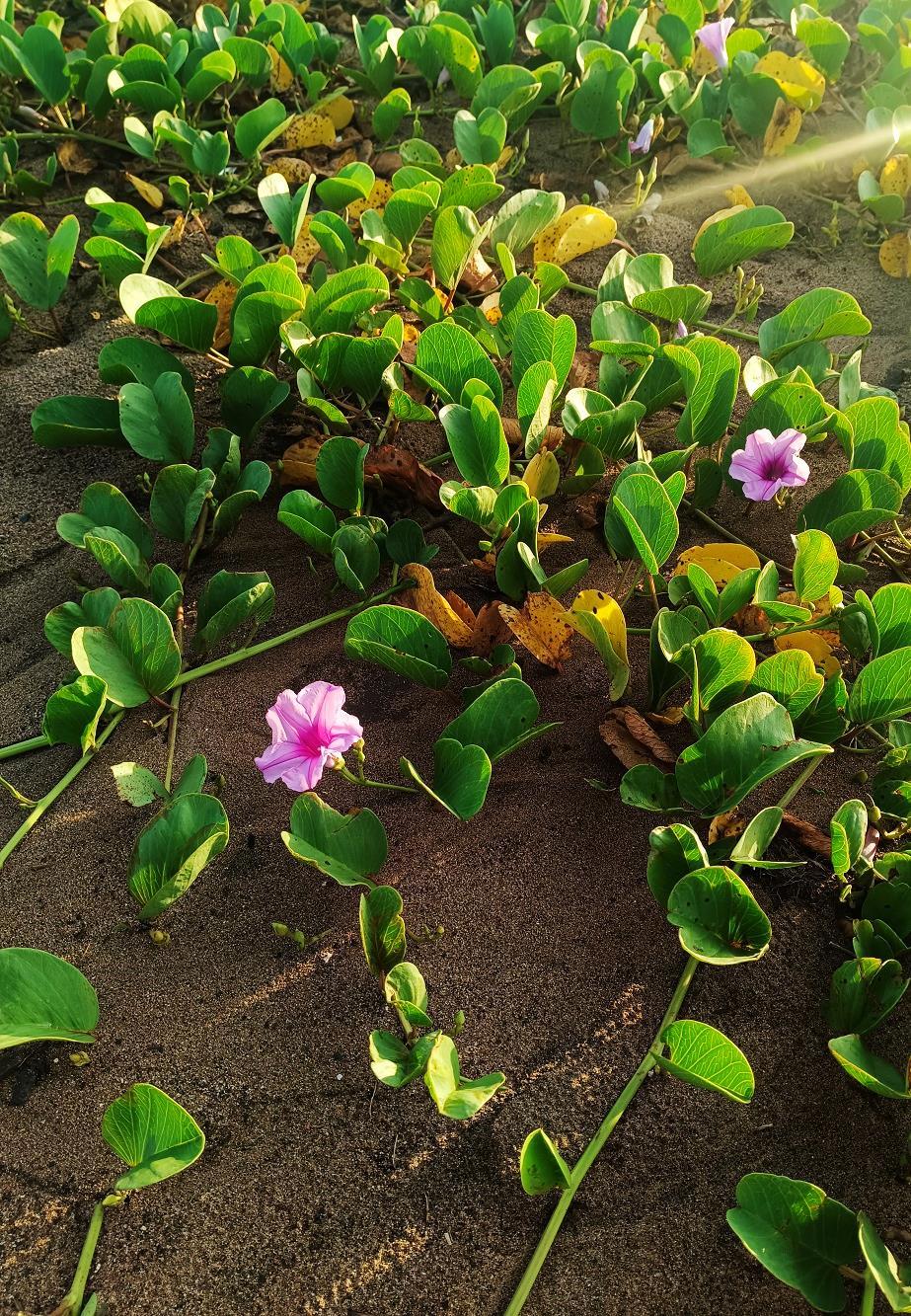






If you've noticed vibrant pink flowers creeping across Tugela Mouth’s beaches, you’re seeing Beach Morning Glory (Ipomoea pes-caprae subsp. brasiliensis) - a hardy dune stabilizer that’s flourishing along our coastline.
Built for the Beach
This tough little vine thrives in hot, salty, and windy conditions, helping to prevent erosion and protect our shores. Its buoyant seeds travel by water, allowing it to spread naturally along tropical and subtropical beaches.
A Pollinator’s Paradise
With nectar-rich flowers, this plant attracts bees, butterflies, moths, and beetles, playing a crucial role in coastal ecosystems.
Let’s Protect It!
While resilient, Beach Morning Glory faces threats from trampling, coastal development, and invasive species. As it continues to flourish at Tugela Mouth, let’s help preserve this coastal treasure for the future.
Source: South African National Biodiversity Institute (SANBI)
“ The primary pollinators of this plant are bees.”

Call for Parasitic Bird Photos!
The John Voelcker Bird Book Fund (JVBBF) is launching a new project and needs your help! They are looking for photos of Southern Africa’s parasitic birds including Cuckoos, Honeyguides, Cuckoo Finches, Whydahs, and Indigo Birds.
What they need:
• Behavioral shots (interactions with host species).
• Not just portraits, but action and interaction!
If you have photos to contribute, please email Guy Upfold at birds@robertsbirds.co.za. Your images could play a vital role in this exciting project!
Great Spotted Cuckoo Photo: Kloof Conservancy

TUGELA MOUTH
Your contributions help fund the wages of our dedicated field worker, ensuring the continued care and protection of our beautiful environment.
If you’d like to contribute, please reach out via:
Email: conservancy@tugelamouth.org
WhatsApp: 079 495 7126
Every bit of support makes a difference!
Banking Details:
Tugela Mouth Conservancy
FNB (Current) Acc. no.: 63103113188
(Please include your name or if you are a resident your Lot# when making payments.)
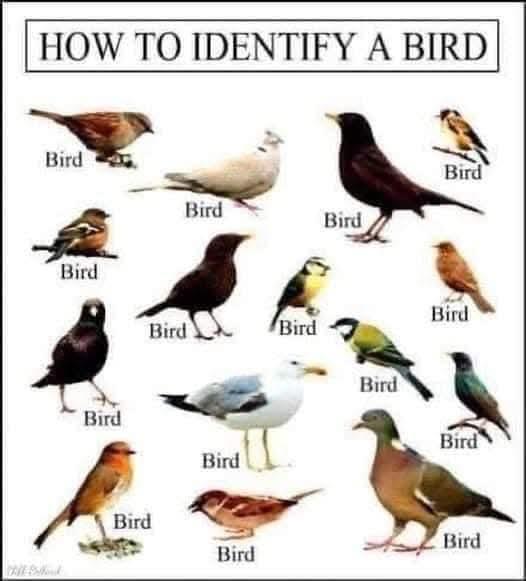

STAY IN TOUCH E-mail: conservancy@tugelamouth.org | WhatsApp: 0794957126
Facebook: Tugela Mouth Conservancy | We would love to hear from you! Send your contributions to us via email or WhatsApp.